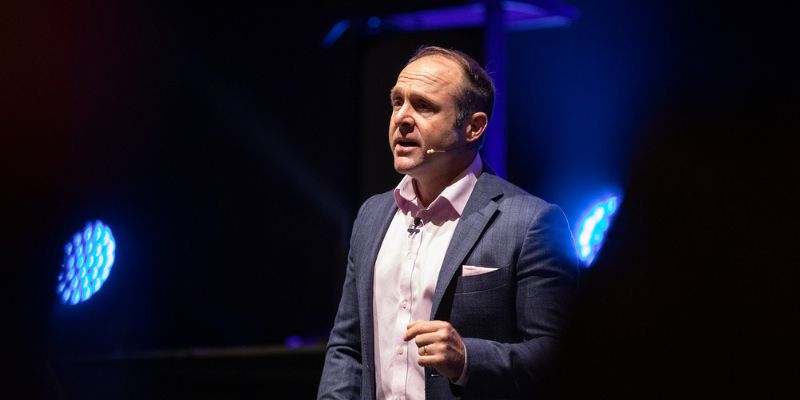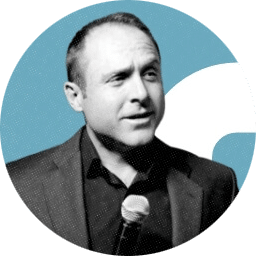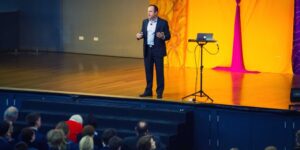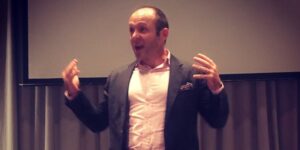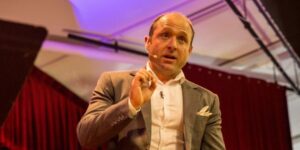In today’s episode, we delve into a crucial distinction between action orientation and state orientation. Drawing insights from Abigail Shrier’s enlightening book, “Bad Therapy,” and groundbreaking research by Professor Linden from the University Hospital in Berlin, we uncover the power of focusing solely on actionable steps rather than succumbing to emotional states. Join us as we explore how embracing action orientation can lead to greater productivity and success in various aspects of life.
Welcome Aboard
Hey there, my friend, Jonathan Doyle with you once again. Welcome to the Daily Podcast. I’m glad you are here today. You and I need to talk about the difference between action orientation and state orientation.
Understanding Action Orientation vs. State Orientation
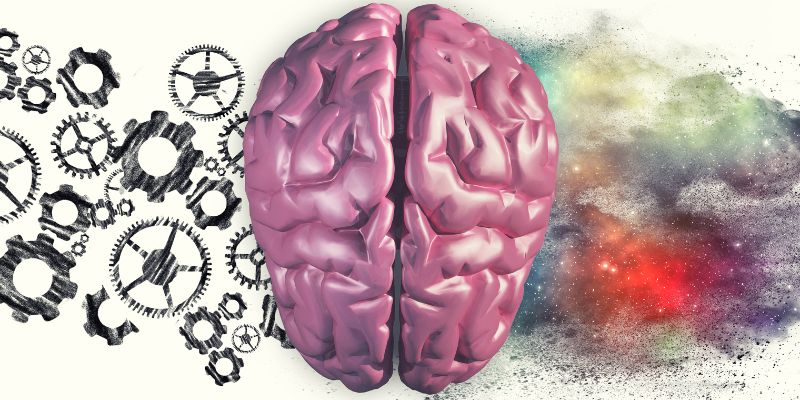
I’ve been reading a fantastic book by Abigail Shrier called Bad Therapy, and it’s just been brilliant. It’s really helped me to think deeply about how we think. The way that our thinking shapes our reality. I came across some brilliant research from a professor named Linden at the university hospital in Berlin. It’s about the difference between something called action orientation, and state orientation.
Let’s make it really simple. Action orientation means that you focus only on the actions that you need to take to get something done. You don’t focus on the state or the feelings. All right. So basically, it’s super simple. It’s if there’s something important that you need to do. As I’ve said a thousand times, you first need to understand that there’s a good chance. You may really feel like doing it.
When I read this long interview with Professor Linden, it was fascinating because he talked about the fact that we go around all the time, thinking that we should be feeling happy most of the time. That we should always be super pumped and jazzed about whatever it is we are supposed to be doing. And that in life we should wake up every day feeling million dollars. There’s an irony here because this is a personal development podcast, but I realize this as I get older and as I read, think, and experience more. Life can be hard, right? And we’re not always running around thinking this is great. Everything’s great. All the time.
The other part of Professor Linden’s research is what you tend to focus on, am I feeling happy? Statistically, in terms of a lot of empirical data, The less happy you are likely to be. What the research is telling us is that we’ve got to focus much more on action orientation. Which means, what needs to happen? What are the steps to make it happen? And just go and execute on that and focus on the steps and the process and not on the feelings.
Embracing Action Orientation

Friends, some days you are going to feel like a million dollars, and you’re going to be eating right, you’ll be exercising, everything’s just going to be amazing. I used to feel that, as I’ve said on previous podcasts, I’d be up really early, and I’d do a 60, 70, or 80 K bike ride at a pretty high level with some great other people. Come back, have a coffee and a hot shower. You feel great, but we’re not always in that space. And we can’t stay in that space all the time.
What we want to get good at is action orientation, which means following the steps and ignoring the feelings. And if anything, what I’m saying jars a little bit, the reason it jars with people is because we have been raised and conditioned to believe that we should always be happy. That mental health must be optimized at all times, but it’s not; we’re humans. It’s a frail, broken world. There’s going to be times when it all stinks and we don’t feel great.
If we built a life around only executing, when we feel like doing it, it’s not going to be much of a successful life because you’re going to be blown back and forward by the winds of your emotional states. You’re going to be blown away by how you feel.
Learning from Dan Carter: A Case Study

Another one, this came home to me, just randomly. I was watching a short video of Dan Carter. You might not be familiar with him, Dan Carter is arguably the greatest five eight, it’s a position in rugby. For the all blacks in New Zealand, all black rugby fans listening might deny that he was, but pretty much it’s consensus that he was the best of the best.
He’s just going through this video about the process that he would follow to take kicks under very high-pressure situations. So we’re stepping through this video and watching a video of himself against the British and Irish Lions, which, again, if you’re not a rugby player, this huge thing happens once every 10 years, where the best British and Irish players play against all of South Africa, Australia, and New Zealand.
There’s this moment where everything is hinged on this one kick, and there’s 80,000 people in the stadium, and he’s literally talking us through it. The exact process that he has followed is called “red hat, blue hat”. It’s about a particular mental framework and some physical things that he does with his body.
But what really jumped out at me was the action process. The fact that the last thing he wanted to be doing was paying attention to his emotional states. He’s really clear about it. He goes, ‘as I came up there, I was thinking, this, that, or the other,’ but there’s just this profound sense that he was not going to let his emotional and psychological states in any way get into this process. He was going to be just focused on the steps. It’s fascinating to watch. He is taking feelings out of the equation.
The Role of Feelings and Emotional Intelligence

Some of you are going, well Jonathan are you saying that we should just stop feeling? I go; no, you just want to use feelings when it’s really appropriate to do so. And when they’re going to enrich and bless a circumstance. Plato used to say: And I’ve said this so many times—a beautiful quote from Greek philosophy.. Feelings are excellent servants, but terrible masters.
Our feelings are excellent servants, they give us data but there is a great problem. And I lived under this for many years, thinking that our feelings are accurate portrayals of life. They’re just not; they’re totally not. There was some other research that I’ll maybe bring into tomorrow’s episode from a brilliant Russian female researcher. Just on the “untrustability”—I can’t believe I just created that as a word.
"Feelings are excellent servants, but terrible masters."
Plato Tweet
The fact that our emotions are just so variable and they gave an example. It’s like getting one of those, do you know those desk chairs that have wheels on the bottom, you’ve got four wheels on the bottom of the chair, and it slides around. Imagine it’s like a timber floor. And you’re using that chair. Have you ever done this? You had to get something off the shelf, and there’s nothing else around. And did you try to use a chair? You remember that feeling, like how completely unstable it is?
It’s like her thesis is that our emotions are a bit like that when it comes to decision-making; they’re just not a stable platform for executing on what really matters.
Committing to the Process

So I can promise you, there are times when I’ve come into the studio where things have been awesome. I’ve had my training, and it’s great. And I tell you the truth. I came into the studio today, Karen’s been in another city for two days, recording a new project. We still have three young kids. I have done more driving in the last 48 hours than, like most of the formula one circuit combined. One of my kids does horse riding. In another time zone I drove forever. Last night they had church, youth groups, and just things and driving, and we’re in the middle of this massive storm system at the moment.
I drove to the studio today, and it’s raining, and I’m like, ah, I didn’t get training in. I’m like, do I let this episode get hijacked by emotions, by my state? No. What’s the process? The process is to have good stuff to prepare, have the equipment ready, have the team here ready to go. And just come in and remind myself of the process. What’s the process ?I want to serve you. The process is that I want to be a blessing to you. I want to enrich your life in some way, that’s the process. It’s not dependent on my feelings. It’s something I’ve committed to.
So, friends, that’s today’s message. I want you to get out of your state of emotional orientation. Learn to stop listening to yourself. I’ve done this in previous podcasts. I’ve got to get better. I am teaching you this because I am the kind of person who has been blown in every possible direction by my own emotions. And I am saying no more. I’m saying this will be this way. This ends with me.
Tomorrow will be different. And I mean it. I’m teaching this because I’m passionate about it because I’ve seen what chaos can do and having it in my own life. So I want you to get, look, and identify the steps that matter, insignificant things, in your marriage, your parenting, and your business, in your career, in your friendships. Just do the process and learn to ignore the feelings. I suppose the question for the pushback is what. When do we use our feelings? Guess what? You’ll figure it out. There are times when they serve you and they are data. They are data in the system. They are good inputs, but they are terrible masters. So stay with the process. Identify what matters and execute.
"You can take action or let your feelings dictate your outcomes. The magic comes by doing, not by feeling."
Jonathan Doyle Tweet
Conclusion: Call to Action

Now, execute on this. Please make sure you’re subscribed. If you’re hearing this and you haven’t subscribed, shame on you; angels are crying. It’s your fault. You need to subscribe; hit the subscribe button right now. You can find me on Instagram; just look up Jonathan Doyle’s daily podcast. I think it’s on YouTube, and I love my website: jonathandoyle.co.
You can book me to speak, training for staff, businesses, consultancy stuff. It is all on the website. And if you are on Instagram, you can find me in one word, jdoylespeaks one word. Go check it out. My friend, God bless you. My name’s Jonathan Doyle. This has been the Daily Podcast. You and I are going to talk again tomorrow.
